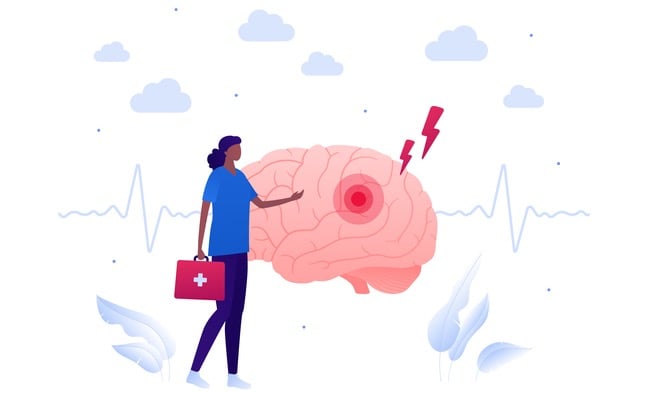Whether you're a Nurse dealing with the daily stresses of the healthcare profession or simply looking for ways to unwind and recharge, this list of activities is designed to help you make the most of the spring season. From outdoor yoga sessions to mindful walks in nature, each suggestion is aimed at promoting relaxation, rejuvenation, and overall well-being. So take a moment to prioritize self-care and indulge in these activities that will benefit your physical and mental health, and allow you to fully embrace the beauty of the season.
Outdoor Yoga Sessions: Find a serene spot in nature and allow yourself to fully immerse in the sounds and sights of the natural world. As you roll out your yoga mat and take a deep breath of the fresh spring air, feel the gentle warmth of the sun on your skin. With each yoga pose, let go of the stresses and tensions that have built up, allowing your mind to find peace and your body to release any pent-up energy.
Hiking Adventures: Embark on a journey of discovery as you explore the winding trails and hidden gems of nearby nature reserves. Let each step be a reminder of the beauty and tranquility nature has to offer, while also providing your body with the exercise it craves. Take in the sights and sounds of the natural world around you, allowing yourself to fully immerse in the wonders of the spring season.
Picnic in the Park: Pack a basket with an assortment of fresh fruits, crunchy veggies, and homemade sandwiches, and head to a park or garden for a delightful picnic experience. Spread out a cozy blanket under the shade of a blooming tree or beside a calming pond. As you savor each bite of your snacks, take in the sweet scents of spring. Engage in light-hearted conversations with your loved ones, sharing laughter and creating cherished memories.
Gardening: Start a small garden or volunteer at a community garden to connect with nature and relieve stress. Planting seeds, nurturing them as they grow, and watching flowers bloom or vegetables thrive can be incredibly therapeutic. The act of gardening allows you to disconnect from the stresses of everyday life and focus on the beauty and growth that nature offers. Additionally, volunteering at a community garden not only provides a sense of purpose and fulfillment but also allows you to connect with like-minded individuals who share a passion for cultivating the earth.
Nature Photography: Take up photography as a hobby and allow the beauty of spring landscapes, blooming flowers, and vibrant wildlife to be your inspiration. Whether you focus on the delicate petals of a newly bloomed flower, the playful squirrels in the park, or the colors of a sunset over a lake, let your photography skills transport you to a world of creativity and inspiration.

Mindfulness Meditation: Make it a daily ritual to set aside a few moments for mindfulness meditation, allowing yourself to sink into a state of deep relaxation and mental clarity. Find a quiet and comfortable space where you can fully focus on your breath, letting go of any distractions or worries that may be weighing on your mind. With each inhale and exhale, feel the tension melting away from your body and the chatter in your mind quieting down. Embrace the present moment fully, allowing yourself to be fully present and aware of your surroundings. By dedicating yourself to this practice each day, you can cultivate a sense of inner peace and calm that will carry you through the challenges of the day with grace and ease.
Bike Riding: Dust off your bicycle and embark on a scenic ride through parks or peaceful trails. Let the rhythm of your pedaling guide you through lush greenery, fragrant flowers, and chirping birds, immersing yourself in the beauty of nature. Cycling outdoors is not just a form of exercise but a soul-soothing experience that connects you to the world around you. So saddle up, explore new paths, and let the joy of cycling in the springtime refresh your body and mind.
Outdoor Workouts: Embrace the fresh air and sunshine by taking your workout routine outdoors. Whether it's a brisk jog or walk through a scenic park, or a series of bodyweight exercises in a peaceful outdoor setting, working out in nature can enhance not only your physical fitness but also your mental well-being. So lace up your sneakers, hop on your bike, or simply find a patch of grass to move your body and feel the benefits of exercising in the great outdoors.
Kayaking or Canoeing: Paddle your way to tranquility and adventure by spending a relaxing afternoon kayaking or canoeing in the waters of nearby lakes or rivers. Feel the gentle breeze against your skin as you glide across the water, surrounded by the peaceful sounds of nature. Take in the sights of lush greenery, vibrant flowers, and maybe even spot some wildlife along the way.
Botanical Garden Visits: Explore the enchanting world of local botanical gardens, where colorful spring blossoms await your admiration. Take a leisurely stroll through curated displays of flowers, trees, and plants, each offering a unique glimpse into the beauty and diversity of the natural world. Engage with staff or informational signage to learn more about the different plant species, their origins, and the significance of their conservation.
Outdoor Cooking: Gather your closest friends and family for a fun-filled cookout or even enjoy a nice meal on your own. Fire up the grill and sizzle your favorite meats or veggies to perfection, the act of cooking over an open flame adds an extra layer of flavor and excitement to your meal. Set up a cozy outdoor dining area with string lights and comfortable seating, creating the perfect ambiance for enjoying your delicious feast.
Stargazing Nights: Set aside an evening under the starry sky for a magical stargazing experience. Gaze up at the vast expanse of the universe, contemplating the mysteries and wonders that lie beyond our reach. Feel a sense of awe and humility as you witness the beauty of the cosmos, reminding yourself of the infinite possibilities and boundless beauty that surrounds us.
Attend Outdoor Events: Look for outdoor concerts, festivals, or farmers' markets in your area to enjoy the vibrant atmosphere of spring. Let the music, art, and flavors of the season fill your senses as you connect with your community and embrace the spirit of renewal and growth.
Wildflower Picking: As you wander through the fields or farms, take your time to admire the array of wildflowers that bloom in vibrant hues. Display your hand-picked beauties in a vase or mason jar, creating a floral arrangement that serves as a reminder of the beauty and serenity of the natural world. Embrace the simplicity and joy of wildflower picking as a mindful and grounding activity that connects you to the earth and brings a piece of the outdoors into your home.
Bird Watching: Dive into the fascinating world of bird watching by grabbing a pair of binoculars and a bird identification book. Take the time to immerse yourself in the peaceful surroundings of nature as you observe local bird species in their natural habitats. Try bringing some bird seed with you to feed the local wildlife.
Outdoor Reading: Find a cozy spot in the park or your backyard and immerse yourself in a good book while enjoying the warmth of the sun. Allow yourself to be transported to different worlds, as the words on the pages paint vivid images in your mind. Feel the gentle breeze rustling the pages of your book, adding to the peaceful ambiance of your reading retreat.
Nurses, we encourage you to embrace this list of activities as a way to prioritize self-care and enhance your overall well-being during the rejuvenating spring season. Let these suggestions guide you in finding moments of relaxation and rejuvenation amidst the demands of your profession.



 May is mental health awareness month, a time to
May is mental health awareness month, a time to  While physical health is undoubtedly important, so is Mental Health. Millions of Americans are affected by mental illness each year. Psychiatric Nurses have the specialized knowledge and skills needed to treat these
While physical health is undoubtedly important, so is Mental Health. Millions of Americans are affected by mental illness each year. Psychiatric Nurses have the specialized knowledge and skills needed to treat these